How locals saved and reinvented a modernist Junzo Sakakura building
A modernist icon was saved from demolition by the local community and given a second chance. It’s now a cultural complex with a striking 19-key hotel. Shall we show you around?
Walk below the “White Phoenix” castle of Iga-Ueno and history is never far away. There are rows of old townhouses and shops selling traditional ceramics, while the Iga-ryu school of ninjas and 17th-century poet Matsuo Basho are widely celebrated. This summer, however, it’s an icon from a more recent era that’s renewing interest in this part of western Mie prefecture.
Built on a gentle slope by the castle, the former Ueno Municipal Office was designed by Junzo Sakakura, one of Japan’s finest modernists, whose impact on life in the postwar era extended to numerous civic projects in regional Japan. Completed in 1964, the low-rise building merges with the landscape, welcoming Iga’s citizens rather than looking down on them. It has long been a beloved architectural icon. When it faced the prospect of demolition in 2008, a local movement led by former mayor Sakae Okamoto ensured its preservation. It was designated as a cultural property in 2019, laying the foundations for the creation of a destination for local residents and visitors alike.

Junzo Sakakura’s ‘architecture for humanity’
Sakakura trained under Le Corbusier before rising to fame with his prize-winning Japanese Pavilion at the 1937 Paris International Exposition. He later became a leader of postwar modernism, working across public and private commissions with a core philosophy of “architecture for humanity”. In Iga, his buildings included schools, a community centre and a park rest area, many of which have not survived. Aside from the former Ueno Municipal Office, projects that have now been preserved include the Museum of Modern Art in Kamakura and the International House of Japan, designed with Kunio Maekawa and Junzo Yoshimura.
Working closely with the local government, Iga-based Funatani Holdings developed plans for Sakakura Base, a culture complex with a hotel, an Iga-brand shop and a public library. The first phase of the project includes Hakusen, a 19-key hotel on the second floor. Its design was led by Yohei Takano and Sachiko Morita of Tokyo-based studio Maru Architecture, which also oversaw the building’s renewal and the design of the library.
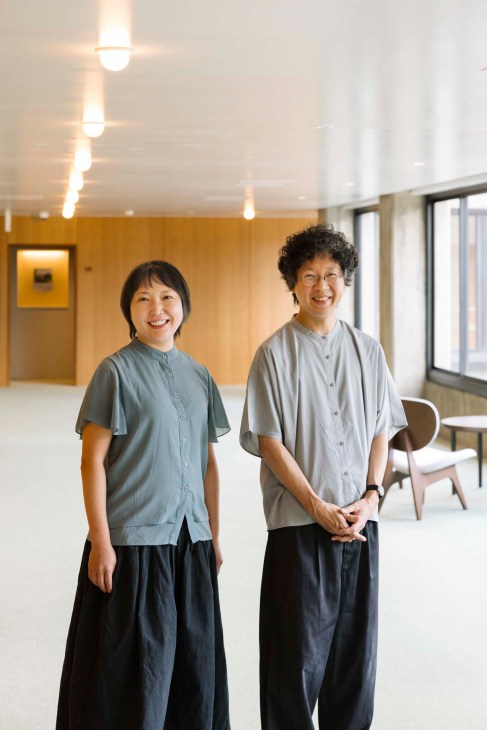
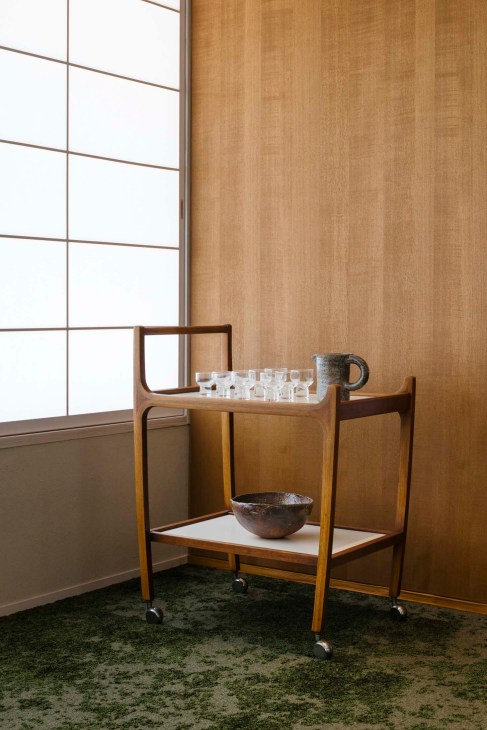
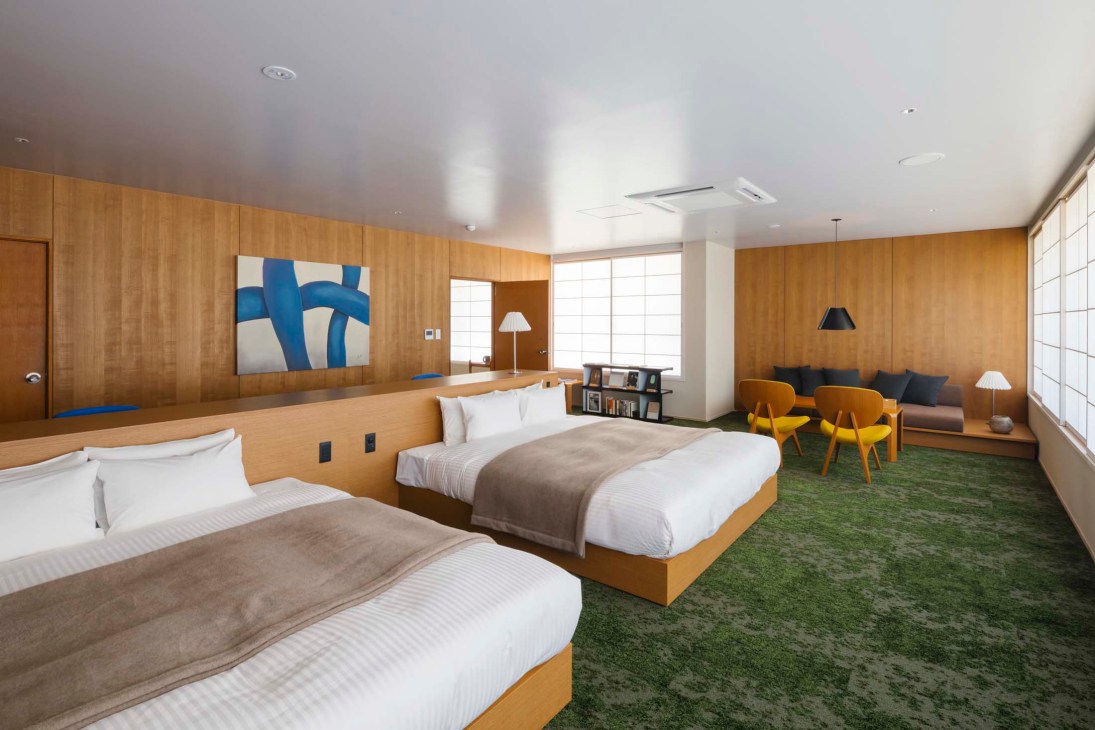
“Junzo Sakakura was one of Japan’s greatest architects, so there was a bit of pressure,” says Takano. “The building felt like Sakakura’s at first but, over time, the boundaries between his work and ours became less clear. Our aim was to seamlessly connect the old and the new.” Yet the architects quickly found out that bringing a 60-year-old heritage-listed building into the present era was not without its challenges. Sakakura’s largely passive design – the building originally had no air-conditioning – had to be updated, leading to the creation of spaces that transition from calm interiors to the external surroundings.
“Sakakura really valued circulation, so he created details that catch your gaze as you move through the building,” says Morita, pointing out the variations in grain on the wood-pressed concrete pillars. “Even the same materials are given different textures in different places, drawing you in deeper and deeper.”
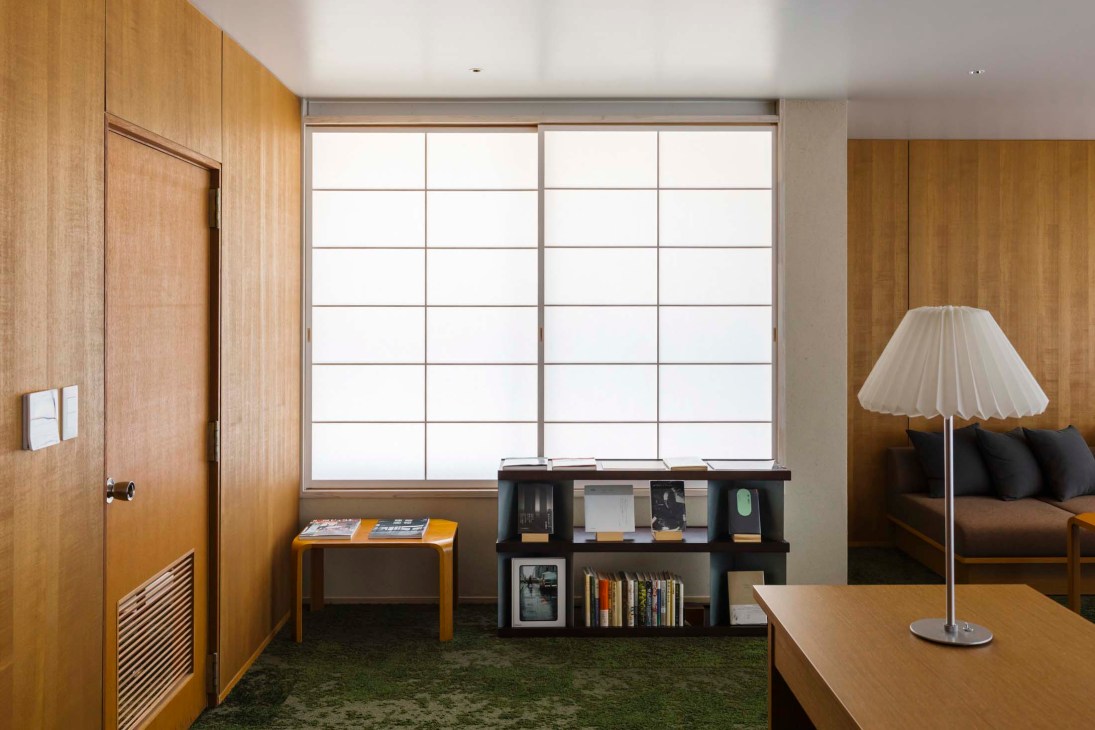
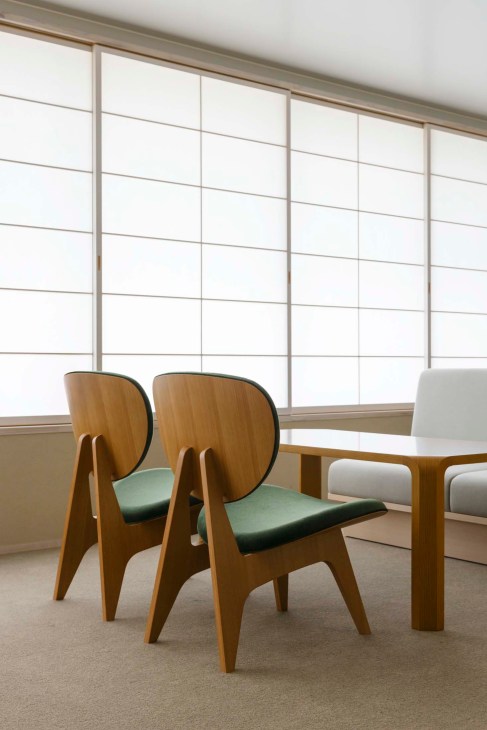
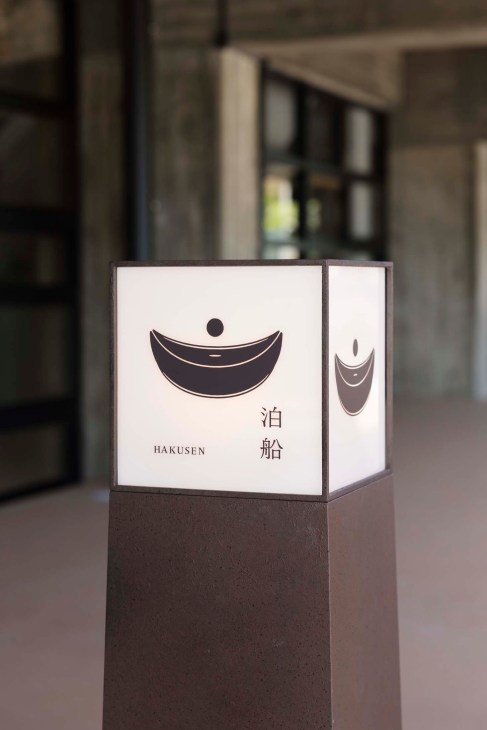
From the Hakusen Suite, the former mayor’s office, all the way around the perimeter, the guest rooms feature ash-wood veneer, sakan plasterwork and shoji panels in harmony with restored heritage materials. A mix of new and vintage furniture from Tendo Mokko, designed by Sakakura Associates architects and engineers, adds further character, alongside art curated by Shunsuke Kato of Shigaraki-based Nota&design. “This building has survived due to the strength of its architecture, so I was intent on finding works with a quality that will remain powerful a century from now,” says Kato. Three young artists with roots in Mie prefecture were selected: Masaomi Yasunaga, whose ceramic glaze mosaic takes pride of place at the reception; Lena Fujimoto, who lends her abstract paintings; and Taro Tsubota, whose wood-fired vessels and objects appear throughout the rooms.
The local flavour extends to Iga-made products, including Nagatani-en ceramics, amenities from 101-year-old Kimura Soap and room numbers designed by UMA/Design Farm. There’s also ample reading material: architecture, modernism and art titles can be found in every room. Once the ground-floor library opens next spring, plans are under way for hotel guests to become honorary members, able to borrow titles to enjoy in the comfort of their room or in the reading lounges.
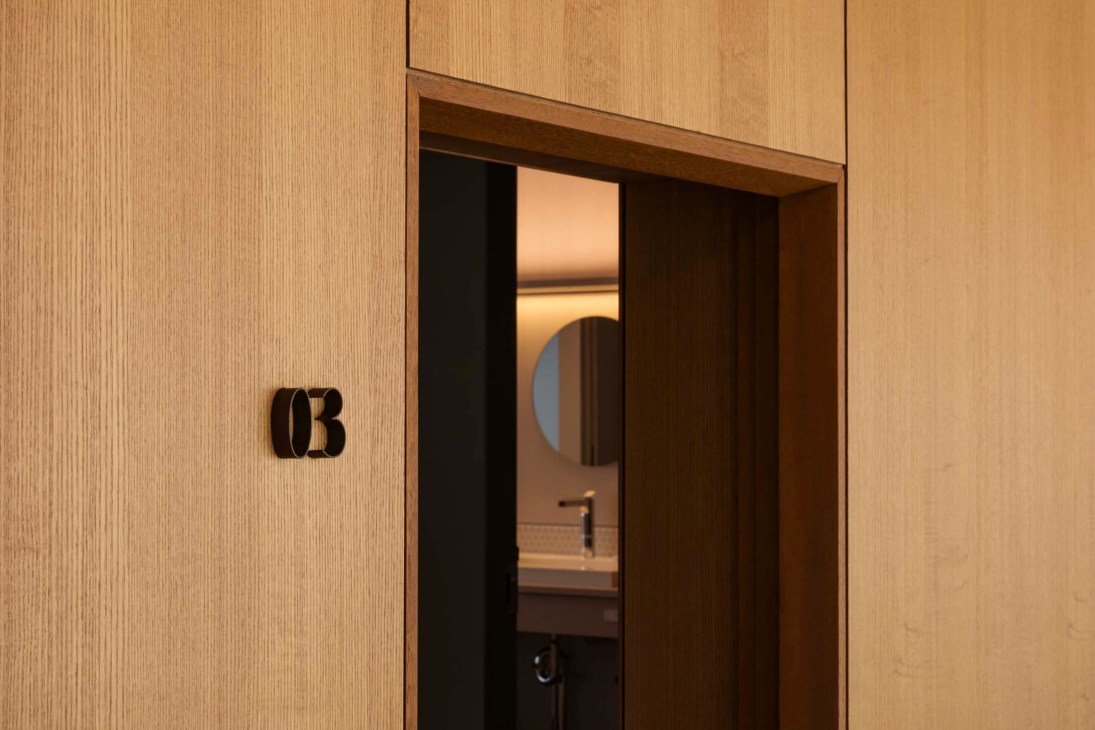
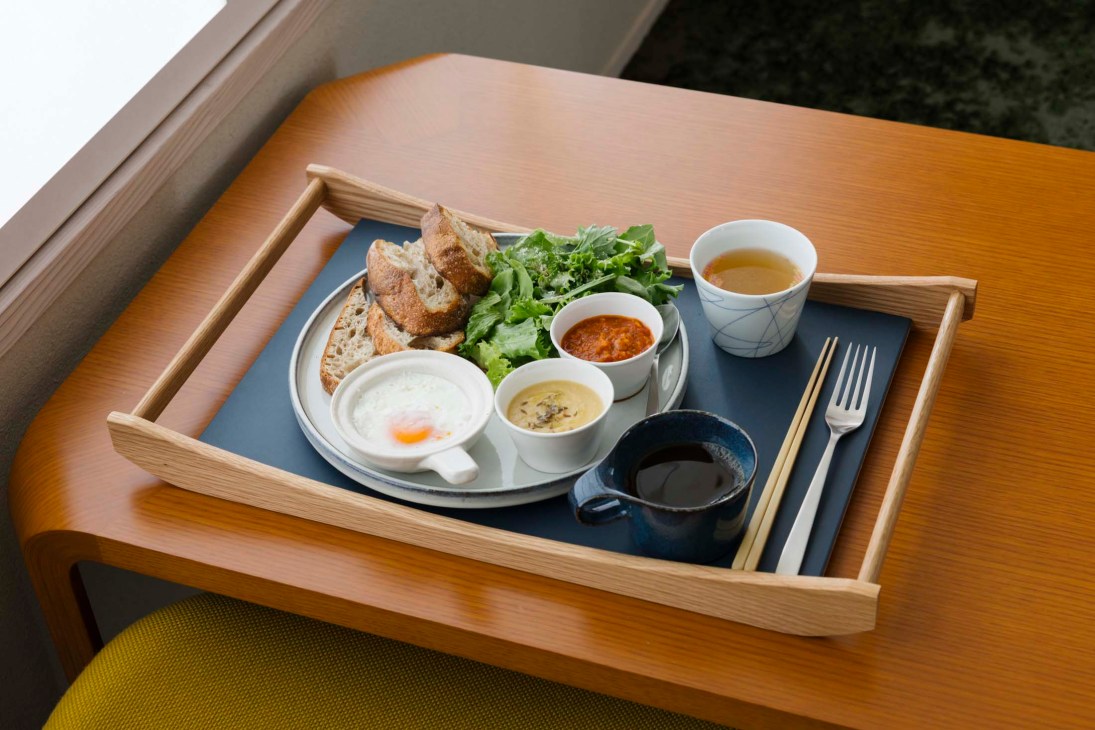
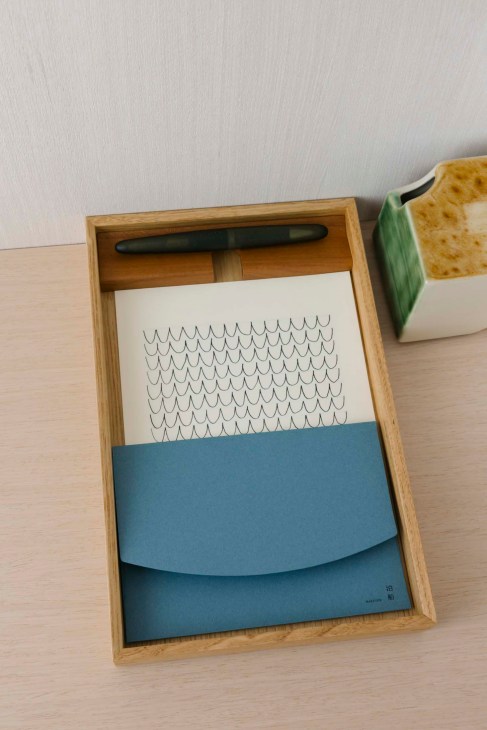
“The hotel’s concept is a ship on a lake of words. I want people to arrive here at this dock and not worry about time, enjoying their stay before embarking on a new voyage,” says Iga local Takashi Wada, who joined the hotel as hotelier. “This building has always been here, watching over us. I hope that, just like me, the children walking past on their way to school will want to work here when they grow up.”
Getting here
Iga is best accessed by car. The drive takes an hour from Osaka and 90 minutes from Kyoto or Nagoya. Your journey will give you a chance to explore pottery towns and the surrounding nature. Train and bus links are also available.
Iga address book:
1.
Omori
Yoshinori Omori’s counter-only diner has 10 seats and a blackboard filled with daily specials. He is also behind Hakusen’s breakfast service.
Shintenchi M, 23 Uenomarunouchi, Iga
2.
Ris
Italian omakase (chef’s choice) restaurant in a townhouse showcasing locally sourced Iga beef and seasonal produce.
ris-iga.com
3.
Minomushi-An
The reconstructed thatched-roof hermitage of Iga-born poet Matsuo Basho, who is considered the greatest haiku master in history.
basho-bp.jp
4.
Ichinoyu
A neon-signed sento (bath house) with floral-tiled baths and a Showa-era atmosphere. The heritage-listed building dates back to 1926.
ichinoyuiga.com
5.
Gallery Yamahon
Tadaomi Yamamoto’s gallery and café in the northern pottery town of Marubashira is essential for craft fans.
gallery-yamahon.com


